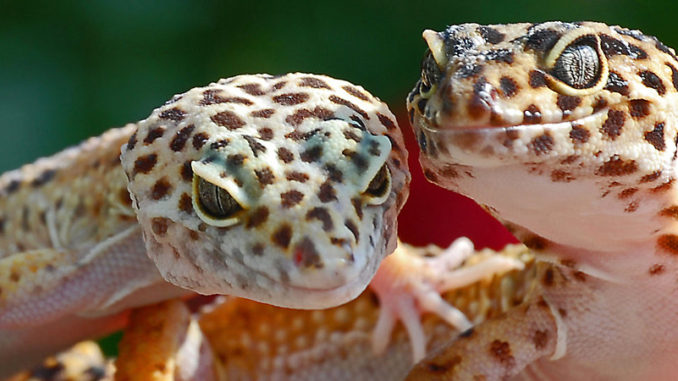
Leopard geckos are carefully insectivores. This implies they eat bugs.
Notwithstanding, because your pet “just” eats bugs doesn’t imply that their eating routine ought to be exhausting! Nowadays, there is an immense range of feeder creepy crawlies accessible.
Taking care of a wide range of bugs is a fundamental type of enhancement for your pet. It additionally improves the probability that your Leopard gecko is getting all its necessary nutrients and micronutrients.
Hence for those who are searching about leopard gecko food , the answer is clear. Wild-caught insects are not ideal for your pet. It is because these insects can have harmful parasites and bacteria or even viruses that can be fatal for your pet. Move Over, you need to avoid feeding your leopard gecko glowing insects. These insects are not safe for your pet and can cause dangerous side effects.
Their feeding accessories
The leopard gecko will not feed automatically. Since it is your pet, you need to provide them with feeding accessories. Here are these must-have-
● Food bowl
The food bowl is essential if you want your pet to get the proper feeder insects. A smooth and shallow bowl with smooth sides is best as the food bowl. Such a bowl allows the feeders from escaping the bowl and also allows your pet to have the food without any disturbance.
Small leopard geckos and new pets can be hand-fed with a paid of oft-tipped feeding tongs. You may also choose your fingers, not the choice is all up to you. You should continue the pet feeding by your hand till it learns to eat the food all by itself.
● Water bowl
You need to provide your pet fresh and filtered water without any traces of chlorine or any other strong chemicals. You need to use a shallow water bowl. Such a bowl prevents your pet from getting drowned in the water. You must replace the water every day and give clean water. Tap water which comes with many trace minerals that are also great for your pet.
Please make sure to clean the food bowl and water bowl regularly. Make sure to have at least two sets of bowls.
Feeder insects for a leopard gecko
These bugs have an ideal or near-ideal protein and fat substance, and they can be the staple of your pet’s eating regimen.
As a general guideline, don’t take care of your Leopard gecko any insects that are greater than the space between their eyes.
You could offer canned or freeze-dried creepy crawlies, yet they aren’t as dietary as new, live bugs, and most Leopard geckos are uninterested in prey that doesn’t move.
Staple foods
You can feed your leopard gecko any of the following feeder insects. You can also try combining two or more insects. Try to alter the insects once in a while so that your pet gets to have different tastes and experiences. If you feed them only one type of insect they might become bored and may not eat that particular feeder. Here are the staple diet insects of leopard gecko-
● Mealworms
● Hornworms
● Crickets
● Dubia roaches
● Scarabs
● Sow Bugs
● Silkworms
● Phoenix Worms
Treat Insects
Treat creepy crawlies have a high measure of fat. The breaking points these treats on more than one occasion per week, or all the more regularly in case you’re attempting to help your Leopard gecko put on weight.
You need to provide those treats so that they can enjoy food and become interested in feeding. The treat insects are-
● Superworms
● Waxworms
● Butterworms
You should always remove the uneaten insects after your pet has finished eating. The extra food can be a cause of stress for your pet.
Gut loading and dusting
Commercial vitamin and mineral supplements allow your pet to get complete nutrition. You can buy these items from any pet shop. You need to dust the feeder insects with the supplement powder before feeding your pet.
You can buy the feeders from any local or online pet shop. Crickets and dubia roaches are easily available, for treats you can find wax worms easily.
Feeding your pet will become easier and convenient with this guidance article. For more tips, you can ask a pet handler or a vet.

Leave a Reply
You must be logged in to post a comment.